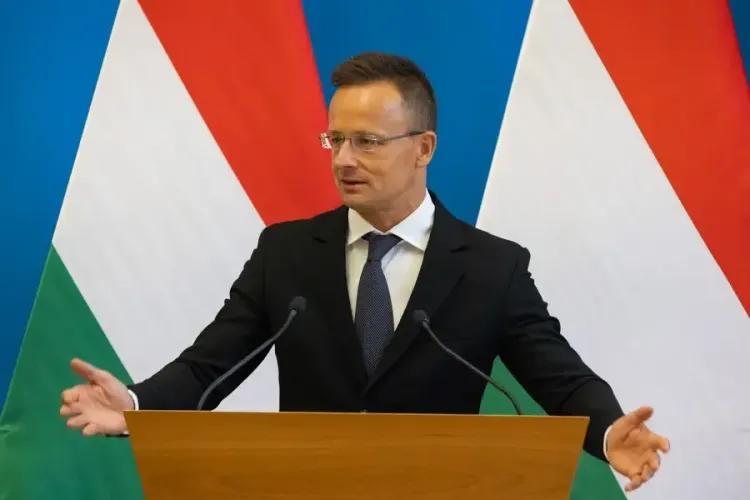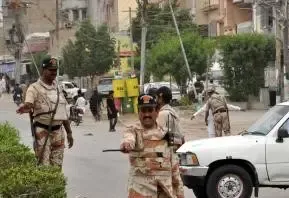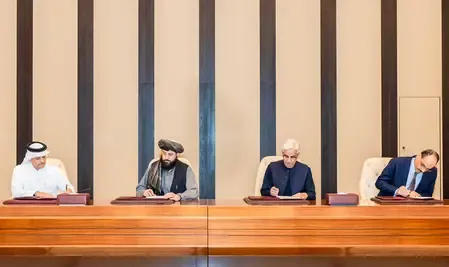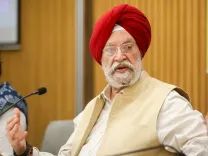Hungarian FM: Halted Gas Transit Harms EU's Competitive Edge

Budapest, Jan 8 (NationPress) Natural gas prices in Europe have increased by 20 percent following Ukraine's decision to halt the transit of Russian natural gas across its borders, as stated by Hungarian Minister of Foreign Affairs and Trade Peter Szijjarto.
Ukraine ceased the transit of Russian natural gas to Europe on January 1, after a five-year transit agreement came to an end.
In a post on Facebook, Szijjarto attributed the spike in natural gas prices to politically motivated supply cuts and sanctions.
The competitiveness of the European Union (EU) has been notably impacted, Szijjarto remarked, emphasizing that the higher natural gas prices compared to those of international competitors are a significant factor.
Hungary, which relies on various routes for natural gas imports, has successfully maintained its energy supply. Szijjarto highlighted the critical role of the Turkish Stream pipeline, asserting that without it, Hungary would be facing an extremely challenging situation as a landlocked nation.
During a conversation with his Slovak counterpart Juraj Blanar, Szijjarto advocated for compliance with the EU-Ukraine Association Agreement, which includes clauses to uphold energy supply routes.
While Hungary remains dedicated to reducing energy costs, Szijjarto cautioned that escalating gas prices are introducing new competitiveness challenges for the EU.
The minister reiterated Hungary's commitment to working with regional partners to address these issues.
In the meantime, on January 2, Slovak Prime Minister Robert Fico mentioned that his Smer-SD party is prepared to engage in discussions with coalition partners regarding reciprocal actions against Ukraine following the stoppage of Russian gas transit.
Potential measures could involve halting electricity supplies to Ukraine and curtailing support for Ukrainian citizens residing in Slovakia, Fico noted on social media.
Fico characterized the situation as extremely serious and requiring a sovereign response from Slovakia.
He pointed out that Slovakia could face a loss of €500 million ($513 million) annually in transit fees after Ukrainian President Volodymyr Zelensky decided to halt the transit of Russian gas through Ukraine. Gas flow to Slovakia stopped on January 1, 2025, after the transit contract expired on December 31, 2024.
According to Fico, Slovakia's only options are to either restore transit or explore compensation mechanisms to offset the financial shortfall.
Fico emphasized that the only beneficiary of Zelensky's decision is the United States, which has increased gas exports to Europe, while Russia experiences minimal repercussions.









